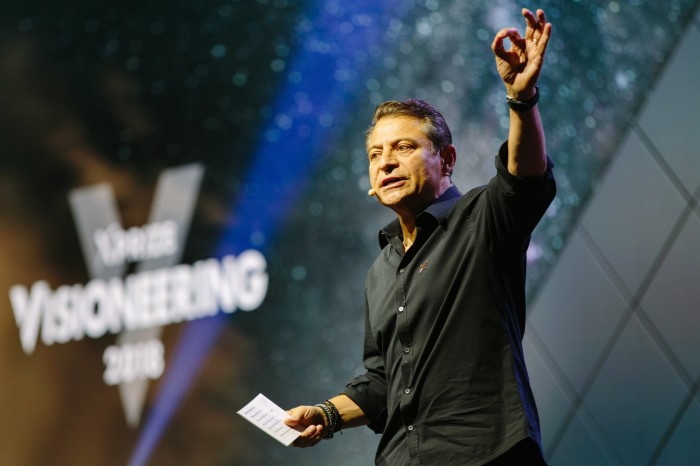Unlock the Editor’s Digest for free
Roula Khalaf, Editor of the FT, selects her favourite stories in this weekly newsletter.
A competition has been launched to encourage technological breakthroughs that will help people live longer and healthier lives as governments grapple with the increasing burden of ageing societies.
X Prize, a US-based non-profit organisation, is offering $101mn — its largest ever prize — for research teams that can show they develop treatments that will restore key muscle, brain and immune functions for 65-to-80-year-olds.
The scientists will need to prove that their therapies can lead to an improvement equivalent to turning back the biological clock by at least 10 years — with an ultimate goal of 20 years. Any treatment must take a year or less and the competition will last seven years.
As populations live longer but not necessarily healthier lives, Peter Diamandis, X Prize’s executive chair, said effective solutions would boost the global economy by helping elderly citizens remain in the workforce.
“Governments are operating under the extreme pressure of dealing with the fallout of unhealthy populations and not getting to the root cause of it,” Diamandis said.
A study from the London Business School, and Oxford and Harvard universities, estimated that extending the population’s health by just one healthy year of life was worth $38tn to the global economy.

More than one in five people is expected to be more than 60 years old by 2050, according to the World Health Organization. The trend will raise healthcare costs and decrease productivity unless improvements are made to so-called healthspan — the period where a person is assessed to be in good health.
The X Prize is co-sponsored by the Hevolution Foundation, a non-profit backed by the Saudi Arabian royal family, and Solve FSHD, a venture philanthropy fund. Solve invests in research into a type of muscular dystrophy that affects Chip Wilson, founder of athletic wear company Lululemon and a big donor to the prize.
Diamandis said he hoped the contest would help more people enter longevity science and raise its profile, pointing out that the 1996 X Prize had played an important role in laying the foundations for the commercial space sector.
While billions of dollars have been poured into longevity research, including by tech billionaires such as Amazon founder Jeff Bezos, scientists still face huge challenges in making practical breakthroughs in the field. Health regulators do not recognise ageing as a disease and it can be hard to track the progress of a therapy without waiting for years to see its effect on lifespan.
“We hope the X Prize will help shape future regulations,” Diamandis said. “When I announced the original X Prize for space flight, the laws and regulations for private space flight didn’t exist.”
In 2021, Tesla and SpaceX chief executive Elon Musk, alongside his Musk Foundation, launched a $100mn prize to help scale solutions to remove carbon dioxide from the atmosphere.
Wilson donated $25mn to the X-prize, with Diamandis saying the Lululemon founder wanted the prize to be worth more than “Elon’s X prize . . . so we made it $101mn”.
